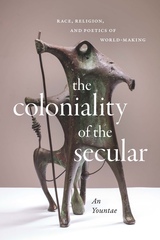46 start with O start with O


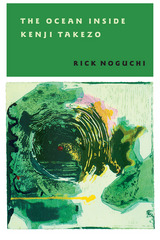
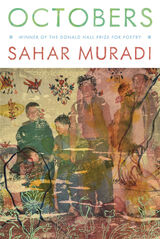
Octobers traces the four great tumults of the author’s life, all of which originated in that jagged month of different years: The US invasion and occupation of her native Afghanistan, the death of her father, the sudden end of a love, and the birth of her daughter. The poems chart heartbreak along a helix, progressively and recursively, where “echoes are inevitable.” Ultimately, the collection is concerned with language—as witness and buoy in the white waters of loss, as a tool for violences small and state-crafted, as an asymptote both approaching ideas of “home” and estranged from it, and, beyond it all and still, as a source of wild wonder.
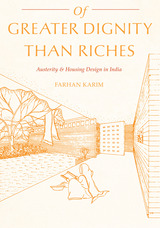
As India moved from colonial rule to independence, the Indian government, business entities, international NGOs, and intergovernmental agencies took major initiatives to modernize housing conditions and the domestic environment of the state’s low-income population. Of Greater Dignity than Riches traces multiple international origins of austerity as an essential ingredient of postcolonial development. By prescribing model villages, communities, and ideal houses for the working class, this project of austerity eventually reduced poverty into a stylized architectural representation. In this rich and original study, Karim explains the postwar and postcolonial history of low-cost housing as an intertwined process of global transferences of knowledge, Cold War cultural politics, postcolonial nationalism, and the politics of economic development.
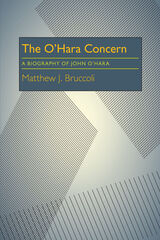

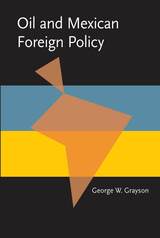

Old Age, New Science explores how a group of American and British life scientists contributed to gerontology’s development as a multidisciplinary field. It examines the foundational “biosocial visions” they shared, a byproduct of both their research and the social problems they encountered. Hyung Wook Park shows how these visions shaped popular discourses on aging, directly influenced the institutionalization of gerontology, and also reflected the class, gender, and race biases of their founders.
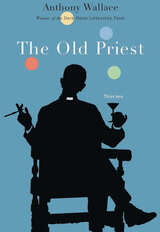
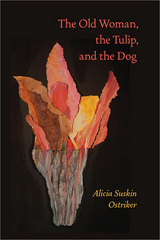

Winner, 2020 NCA Top Single-Author Book of the Year Award
Fred Rogers is an American cultural and media icon, whose children’s television program, Mister Rogers’ Neighborhood, ran for more than thirty years (1967-2001) on the Public Broadcasting System. In this highly original book, communication scholar Alexandra C. Klarén shows how Rogers captured the moral, social, and emotional imaginations of multiple generations of Americans. She explores the nuanced complexity of the thought behind the man and the program, the dialogical integration of his various influences, and the intentional ethic of care behind the creation of a program that spoke to the affective, cultural, and educational needs of children (and adults) during a period of cultural and political upheaval. Richly informed by newly available archival materials, On Becoming Neighbors chronicles the evolution of Rogers’ thought on television, children, pedagogy, and the family through a rhetorical, cultural, and ethical lens. Klarén probes how Rogers creates the conditions for dialogue in which participants explore possibilities and questions relating to the social and material world.

Where does consciousness exist? In the mind? In the external world? On Consciousness features the most up-to-date considerations of the subject by the internationally renowned philosopher Ted Honderich. In this series of meditations, he systematically contemplates the very nature of consciousness as well as the separate question of how consciousness is related to the brain.
His careful, if not conventional, argument begins with Anomalous Monism, a doctrine that holds that mind and brain are one thing with two kinds of properties not lawfully connected. Honderich goes on to consider the thinking of neuroscientists and functionalists who suppose conscious events are caught for us by their causes and effects. He reconsiders humble truths about the mind as well as his own Union Theory, and the anti-individualism that disconnects the mind from the brain.
Honderich examines each of these beliefs in terms of whether they satisfy agreed criteria for acceptable accounts of consciousness. Because each is found wanting, he puts forth a radically new theory of consciousness as experience. Rather than explaining consciousness in terms of awareness, he develops a new kind of materialism, which transcends the traditional labels given to it by philosophers.
On Consciousness respects the most resilient proposition in the history of the philosophy of mind-that consciousness is not just cellular. Honderich's concept of perceptual consciousness consists in a world that is not merely mental, for it is spatial and contains physical objects. This shift to a near-physicalism asserts that all of consciousness is open to science. Proceeding logically through his arguments, Honderich offers a clearly written, refreshing dose of persuasive realism.

Gottfried Wilhelm Leibniz (1646-1716) possessed one of history's great minds. The German philosopher, mathematician, and logician invented (independently of Sir Isaac Newton) calculus. His metaphysics bequeathed a set of problems and approaches that drove the course of Western philosophy, from Kant's eighteenth century until the present day.
For over fifty years, the study of Leibniz has been a consistent passion for distinguished philosopher Nicholas Rescher. On Leibniz offers eleven of his essays, written with signature clarity, exploring the aspects of Leibniz's work and life that still resonate in the discipline of philosophy.
Rescher's essays are snapshots of Leibniz, lucidly drawn case studies that explain the fundamentals of his ontology: the theory of possible worlds, the world's contingency, space-time frameworks, and intermonadic relationships.
Several illuminating pieces reveal Leibniz as a substantial contributor to theories of knowledge. Discussions of his epistemology and methodology, its relationship to John Maynard Keynes and Talmudic scholarship, broaden the traditional view of Leibniz as a uniquely metaphysical thinker.
Rescher also explores, in four absorbing biographical essays, Leibniz's scholarly development and professional career in historical context. As a "philosopher courtier" to the Hanoverian court, Leibniz was associated with the leading intellectuals and politicians of his era, including Spinoza, Huygens, Newton, Queen Sophie Charlotte, and Czar Peter the Great.
A concluding essay holds up Leibniz's mode of philosophy as a role model for today's scholars. Rescher argues that many current problems can be effectively addressed with principles of process philosophy along lines inspired by Leibniz's monadology. On Leibniz is essential reading for students of Leibniz and Rescher alike.

On Leibniz examines many aspects of Leibniz’s work and life. This expanded edition adds new chapters that explore Leibniz’s revolutionary deciphering machine; his theoretical interest in cryptography and its ties to algebra; his thoughts on eternal recurrence theory; his rebuttal of the thesis of improvability in the world and cosmos; and an overview of American scholarship on Leibniz.
Other chapters reveal Leibniz as a substantial contributor to theories of knowledge. Discussions of his epistemology and methodology, its relationship to John Maynard Keynes and Talmudic scholarship, broaden the traditional view of Leibniz. Rescher also views Leibniz’s scholarly development and professional career in historical context. As a “philosopher courtier” to the Hanoverian court, Leibniz was associated with the leading intellectuals and politicians of his era, including Spinoza, Huygens, Newton, Queen Sophie Charlotte, and Tsar Peter the Great.
Rescher extrapolates the fundamentals of Leibniz’s ontology: the theory of possible worlds, the world’s contingency, space-time frameworks, and intermonadic relationships. In conclusion, Rescher positions Leibniz as a philosophical role model for today’s scholars. He argues that many current problems can be effectively addressed with principles of process philosophy inspired by Leibniz’s system of monadology.

Over the past 300 years, settlement patterns, geography, and climate have greatly affected the ecology of the south Texas landscape. Drawing on a variety of interests and perspectives, the contributors to <I>On the Border</I> probe these evolving relationships in and around San Antonio, the country’s ninth-largest city.
Spanish, Mexican, and American settlers required open expanses of land for agriculture and ranching, displacing indigenous inhabitants. The high poverty traditionally felt by many residents, combined with San Antonio’s environment, has contributed to the development of the city’s unusually complex public health dilemmas. The national drive to preserve historic landmarks and landscapes has been complicated by the blight of homogenous urban sprawl. But no issue has been more contentious than that of water, particularly in a city entirely dependent on a single aquifer in a region of little rain. Managing these environmental concerns is the chief problem facing the city in the new century.


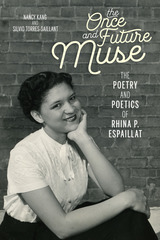
The Once and Future Muse presents the first major study of the life and work of Dominican-born bilingual American poet and translator Rhina P. Espaillat (b. 1932). Beginning with her literary celebrity as the youngest poet ever inducted into the Poetry Society of America, it traces her relative obscurity after 1952 when she married and took on family and employment responsibilities, to her triumphant return to the poetry spotlight decades later when she reclaimed her former prestige with a series of award-winning poetry collections.
The authors define Espaillat's place in American letters with attention to her formalist aesthetics, Hispanic Caribbean immigrant background, poetic community building, bilingual ethos, and domestically minded woman-of-color feminism. Addressing the temporality of her oeuvre—her publishing before and after the splitting of American literature into distinct ethnic segments—this work also highlights the demands that the social transformations of the 1960s placed on literary artists, critics, and readers alike.
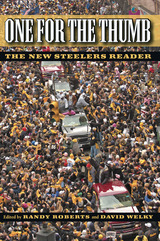
On February 5, 2006, the Pittsburgh Steelers joined the ranks of the elite teams in National Football League history, celebrating their fifth Super Bowl victory. From an unspectacular 7-5 start, to completing the greatest playoff run ever, to the fairy tale ending of Jerome Bettis's Hall of Fame career and the vindication of Bill Cowher's coaching tenure, the 2005 season was not only one for the thumb, but “truly one for the ages.”
One for the Thumb is a collection of the best writing about the fabled franchise by local and national sportswriters, and former players. It covers the team's history from Art Rooney Sr.'s purchase of the NFL franchise in 1933 for $2,500 to their Super Bowl XL victory. From their frustrating early days as the Pirates, Steagles, and Card-Pitts, through their four Super Bowl wins in the 1970s, to the fateful day in 2004 when they selected Ben Roethlisberger as the eleventh overall pick in the draft, One for the Thumb captures the essence of the team whose identity is forever linked with the spirit of the hardworking, blue-collar city it represents.
From immortals Bobby Layne, Ernie Stautner, and John Henry Johnson, to Chuck Noll, Terry Bradshaw, Mean Joe Greene, Rocky Bleier, and Neil O'Donnell, to current greats Troy Polamalu, Jerome Bettis, Ben Roethlisberger, and Bill Cowher, One for the Thumb is the definitive anthology of the Pittsburgh Steelers--a must-read for all fans of the team and the game of football.
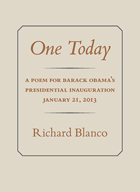
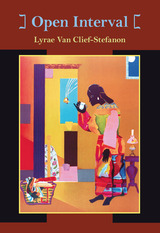
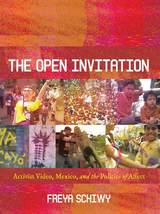
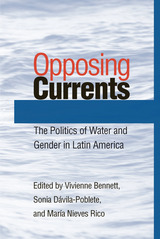
This volume focuses on women in Latin America as stakeholders in water resources management. It makes their contributions to grassroots efforts more visible, explains why doing so is essential for effective public policy and planning in the water sector, and provides guidelines for future planning and project implementation.
After an in-depth review of gender and water management policies and issues in relation to domestic usage, irrigation, and sustainable development, the book provides a series of case studies prepared by an interdisciplinary group of scholars and activists. Covering countries throughout the hemisphere, and moving freely from impoverished neighborhoods to the conference rooms of international agencies, the book explores the various ways in which women are-and are not-involved in local water initiatives across Latin America. Insightful analyses reveal what these case studies imply for the success or failure of various regional efforts to improve water accessibility and usability, and suggest new ways of thinking about gender and the environment in the context of specific policies and practices.
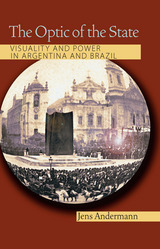
The purpose of these imaginaries was to vindicate the political upheavals of the recent past and secure the viability of the newly independent states through a sense of historic destiny and inevitable evolution. The careful presentation of artifacts and spectacles was also aimed abroad in order to win the favor of European imperial powers and thereby acquire a competitive place in the nascent global economy of the late nineteenth century.
The Optic of the State offers a fascinating critique of the visual aspects of national mythology. It exposes how scientific and cultural institutions inscribed the state-form in time and space, thus presenting historical processes as natural “givens.”
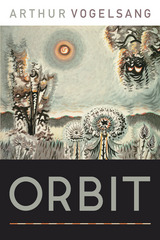
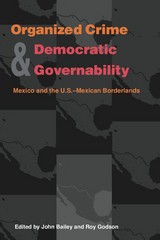
The United States–Mexico border zone is one of the busiest and most dangerous in the world. NAFTA and rapid industrialization on the Mexican side have brought trade, travel, migration, and consequently, organized crime and corruption to the region on an unprecedented scale. Until recently, crime at the border was viewed as a local law enforcement problem with drug trafficking—a matter of “beefing” up police and “hardening” the border. At the turn of the century, that limited perception has changed.
The range of criminal activity at the border now extends beyond drugs to include smuggling of arms, people, vehicles, financial instruments, environmentally dangerous substances, endangered species, and archeological objects. Such widespread trafficking involves complex, high-level criminal-political alliances that local lawenforcement alone can’t address. Researchers of the region, as well as officials from both capitals, now see the border as a set of systemic problems that threaten the economic, political, and social health of their countries as a whole.
Organized Crime and Democratic Governability brings together scholars and specialists, including current and former government officials, from both sides of the border to trace the history and define the reality of this situation. Their diverse perspectives place the issue of organized crime in historical, political, economic, and cultural contexts unattainable by single-author studies. Contributors examine broad issues related to the political systems of both countries, as well as the specific actors—crime gangs, government officials, prosecutors, police, and the military—involved in the ongoing drama of the border. Editors Bailey and Godson provide an interpretive frame, a “continuum of governability,” that will guide researchers and policymakers toward defining goals and solutions to the complex problem that, along with a border, the United States and Mexico now share.
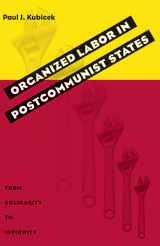
While some of labor's problems can be traced to legacies of the communist period, Kubicek draws upon the experience of unions in the West to argue that privatization and nascent globalization are creating new economic structures and a political playing field hostile to organized labor. He concludes that labor is likely to remain a marginalized economic and political force for the foreseeable.
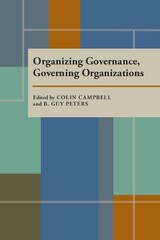
In recent years, Western bureaucracies have continued to expand, but are citizens better served? In this volume, sixteen contributors analyze the problems of government organization, both in individual cases and in a broader comparative context.
Contributors: Joel D. Aberbach; Peter Aucoin; Richard A. Chapman; Michael G. Hansen; Peter Hennessy; Brian W. Hogwood; Mohammad Mohabbat Kahn; Ulrich Klöti; Charles H. Levine; Johan P. Olsen; Bert A. Rockman; Richard Rose; Norman C. Thomas; John Warhurst; and the editors.
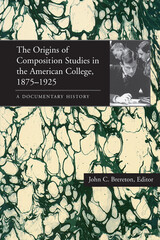
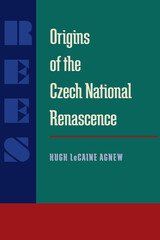
Hugh Agnew develops the argument that Czechoslovakia's celebrated national revival of the mid-eighteenth century has its intellectual roots in the Enlightenment and defined the nation's character and future development. He describes how intellectuals in eighteenth-century Bohemia and Moravia--the “patriotic intelligentsia”--used their discovery of pre-seventeenth-century history and literature to revive the antiquated Czech vernacular and cultivate a popular ethnic consciousness. Agnew also traces the significance of the intellectual influences of the wider Slavic world whereby Czech intellectuals redefined their ethnic and cultural heritage.
Origins of the Czech National Renascence contributes to a renewed interpretation of a crucial period in Czech history.
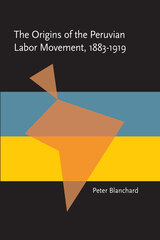
Beginning in October 1883 at the time of Treaty of Ancón terminating four years of warfare with Chile, Peru’s workers started a thirty-year effort to become an active and influential sector of society. They formed organizations, actively participated in the nation’s political life, engaged in industrial agitation—all revealing a growing class consciousness and an ability to compel both employers and governments to respond to their demands. Blanchard’s analysis and insights into the economic factors underlying Peru’s labor unrest also extends to labor developments and the modernization process throughout Latin America.

A reverent jag of irreverence, tilting forward to arresting moments of beauty, astonishment, confusion, and grief, the poems in David Daniel’s Ornaments find their myths in history and pop culture; they take their truths, but just as much their doubts, from the fallibility of what we remember and the desperation with which we struggle to reassemble it. Surreal, lyrical, madcap, they bring a faith, above all, in poetry. Which means in people and their bewildered hearts.

Linguistically daring, lyrically breathtaking, stylistically bold, these poems both explore familiar territory and shatter stereotypes. Life is difficult, often unfair, but it belongs to the living, as Coleman reminds us in no uncertain terms. Racing between an earthy eroticism and fatalistic despair, filled with humor and tragedy, these poems are alive. They breathe. They challenge us even as they reward us for seeking the truth.
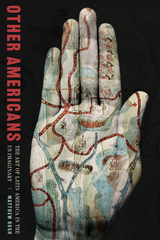
Grounded in perspectives of affect theory, Other Americans examines the writings of Roberto Bolaño and Daniel Alarcón; films by Alfonso Cuarón, Claudia Llosa, Matt Piedmont, and Joel and Ethan Coen; as well as the Netflix serials Narcos and El marginal. These widely consumed works about Latin America—equally balanced between narratives produced in the United States and in the region itself—are laden with fear, anxiety, and shame, which has an impact that exceeds the experience of reception. The negative feelings encoded in visions of Latin America become common coinage for US audiences, shaping their ideological relationship with the region and performing an affective interpellation. By analyzing the underlying melodramatic structures of these works that would portray Latin America as an implicit other, Bush examines a process of affective comprehension that foments an us/them, or north/south binary in the reception of Latin America’s globalized art.
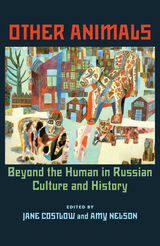
Four themes run through the volume: the prevalence of animals in utopian visions; the ways in which Russians have both incorporated and sometimes challenged Western sensibilities and practices, such as the humane treatment of animals and the inclusion of animals in urban domestic life; the quest to identify and at times exploit the physiological basis of human and animal behavior and the ideological implications of these practices; and the breakdown of traditional human-animal hierarchies and categories during times of revolutionary upheaval, social transformation, or disintegration.
From failed Soviet attempts to transplant the semi-nomadic Sami and their reindeer herds onto collective farms, to performance artist Oleg Kulik’s scandalous portrayal of Pavlov’s dogs as a parody of the Soviet “new man,” to novelist Tatyana Tolstaya’s post-cataclysmic future world of hybrid animal species and their disaffection from the past, Other Animals presents a completely new perspective on Russian and Soviet history. It also offers a fascinating look into the Russian psyche as seen through human interactions with animals.

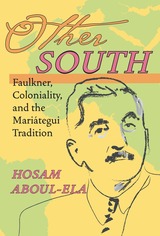
Engaging with ideas and thinkers from the former colonies, Aboul-Ela draws on an understanding of economics, social structures, and the colonial/neocolonial status of the Third World, stepping outside the preconceptions of current postcolonial studies to offer a fresh perspective on our shared literary heritage and a new look at an iconic literary figure.
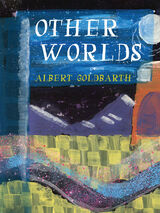
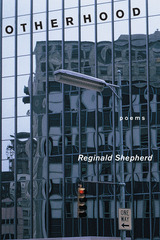
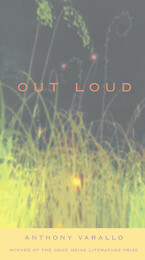
WINNER OF THE 2008 DRUE HEINZ LITERATURE PRIZE
Selected by Scott Turow
Feeling distanced from her friends and family, middle-aged divorcée Caitlin Drury is encouraged by her daughter to express her feelings in a diary, but she is hesitant: “I feel lonely she wrote, then crossed it out. She didn't like the idea of someone coming along later to read her journal, finding out she felt lonely." “Like That,” and other stories from Anthony Varallo's new collection Out Loud give voice to the disconnections of family and relationships, and the silent emotions that often speak louder than words.
In “The Walkers,” we follow a couple on their daily trek through a bedroom community, where they partially glimpse their neighbors' lives, longing for inclusion. Yet their insular lifestyle ensures that they deal with people only on the surface--without learning the truth of their problems.
Out Loud tells of longings for meaningful expression and the complexities and escapism of human interactions that keep us from these truths. Varallo uses the trials of youth and remembrances of the past, the rituals and routines of the everyday, the interactions of family, friends, teachers, and neighbors to peel away the layers of language and actions we use to shield ourselves.

Through the pages of Environmental History Review, now Environmental History, an entire discipline has been created and defined over time through the publication of the finest scholarship by humanists, social and natural scientists, and other professionals concerned with the complex relationship between people and our global environment. Out of the Woods gathers together the best of this scholarship.
Covering a broad array of topics and reflecting the continuing diversity within the field of environmental history, Out of the Woods begins with three theoretical pieces by William Cronon, Carolyn Merchant, and Donald Worster probing the assumptions that underlie the words and ideas historians use to analyze human interaction with the physical world. One of these - the concept of place - is the subject of a second group of essays. The political context is picked up in the third section, followed by a selection of some of the journal’s most recent contributions discussing the intersection between urban and environmental history. Water’s role in defining the contours of the human and natural landscape is undeniable and forms the focus of the fifth section. Finally, the global character of environmental issues emerges in three compelling articles by Alfred Crosby, Thomas Dunlap, and Stephen Pyne.
Of interest to a wide range of scholars in environmental history, law, and politics, Out of the Woods is intended as a reader for course use and a benchmark for the field of environmental history as it continues to develop into the next century.

Out of This Furnace is Thomas Bell’s most compelling achievement. Its story of three generations of an immigrant Slovak family -- the Dobrejcaks -- still stands as a fresh and extraordinary accomplishment.
The novel begins in the mid-1880s with the naive blundering career of Djuro Kracha. It tracks his arrival from the old country as he walked from New York to White Haven, his later migration to the steel mills of Braddock, Pennsylvania, and his eventual downfall through foolish financial speculations and an extramarital affair. The second generation is represented by Kracha’s daughter, Mary, who married Mike Dobrejcak, a steel worker. Their decent lives, made desperate by the inhuman working conditions of the mills, were held together by the warm bonds of their family life, and Mike’s political idealism set an example for the children. Dobie Dobrejcak, the third generation, came of age in the 1920s determined not to be sacrificed to the mills. His involvement in the successful unionization of the steel industry climaxed a half-century struggle to establish economic justice for the workers.
Out of This Furnace is a document of ethnic heritage and of a violent and cruel period in our history, but it is also a superb story. The writing is strong and forthright, and the novel builds constantly to its triumphantly human conclusion.

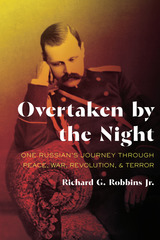
Highly readable, Overtaken by the Night captivates on many levels. It is a gripping biography of a man of many faces, a behind-the-curtain look at the inner workings of Russian politics at its highest levels, and also an engrossing account of ordinary Russians engulfed by swiftly moving political and social currents.
Dzhunkovsky served as a confidant in the tsar’s imperial court and as governor in Moscow province during and after the 1905 revolution. In 1913 he became the empire’s security chief, determined to reform the practices of the dreaded tsarist political police, the Okhrana. Dismissed from office for daring to investigate and warn Tsar Nicholas about Rasputin, his path led him into combat on the battlefields of the First World War. A natural leader of men, he held his units together even as revolution spilled into the trenches. Arrested as a counterrevolutionary in 1918 and imprisoned until 1921, Dzhunkovsky avoided execution thanks to an outpouring of public support and his reputation for treating revolutionaries with fairness and dignity. Although later he consulted for the Stalinist secret police, he was tried and executed in 1938 as an enemy of the people.
Based on Dzhunkovsky’s detailed memoirs and extensive archival research, Overtaken by the Night paints a fascinating picture of an important figure. Dzhunkovsky's incredible life reveals much about a long and crucial period in Russian history. It is a story of Russia in revolution reminiscent of the fictional Doctor Zhivago, but perhaps even more extraordinary for being true.
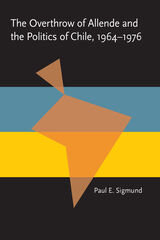
READERS
Browse our collection.
PUBLISHERS
See BiblioVault's publisher services.
STUDENT SERVICES
Files for college accessibility offices.
UChicago Accessibility Resources
home | accessibility | search | about | contact us
BiblioVault ® 2001 - 2024
The University of Chicago Press





